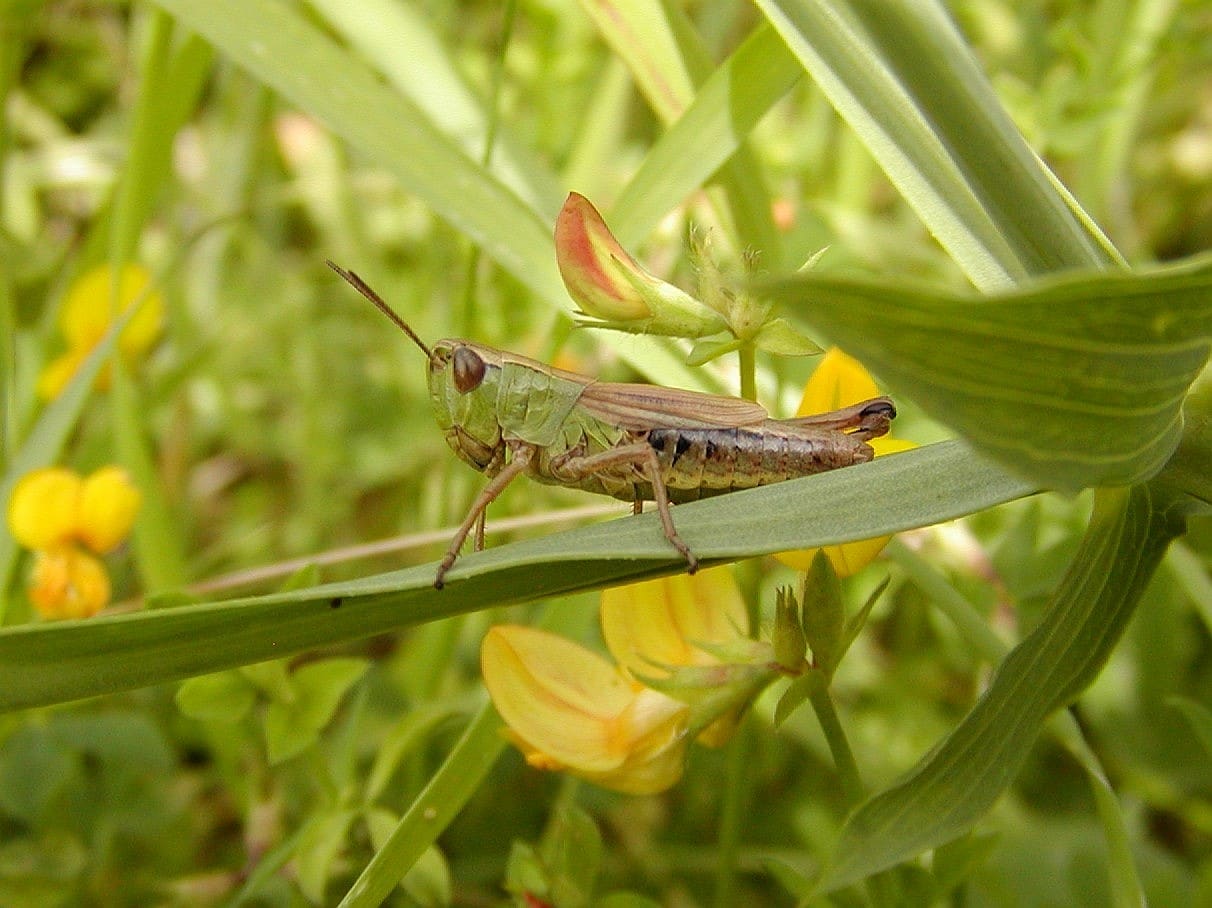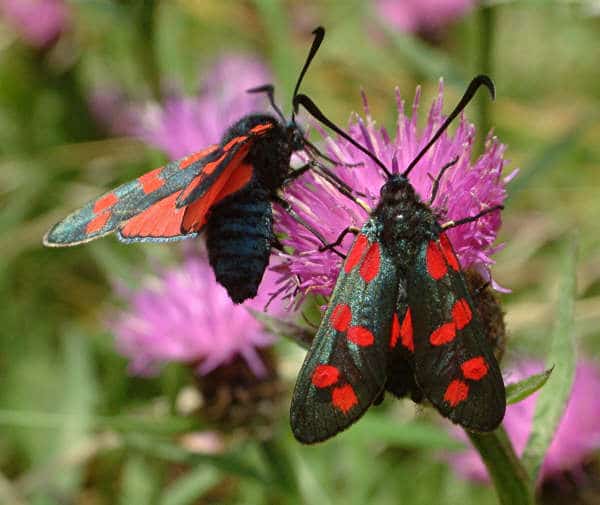Chloë Smith, GiGL Partnership Manager
Achieving biodiversity net gain means that changes brought about by development conclude with biodiversity faring better than it did before works took place. This should ideally be at the same location, but where that is not possible may be achieved by improvements for biodiversity in other locations.
Thinking on how to achieve genuine gains for biodiversity via this mechanism has progressed over recent years and various organisations in London are now working on putting it into practice.

Meadow grasshopper (c) London Wildlife Trust
GiGL is currently supporting long-term partner Transport for London (TfL) in their project to embed net gain for biodiversity within their operations.
Responsible for London’s major transport infrastructure, TfL has ambitious policy commitments to deliver net gain for biodiversity across operational areas. By delivering biodiversity net gain, TfL will also be demonstrating best practice towards national and London environmental policy and strategy.

Six spot burnet moths on common knapweed (c) Robert Clark
We are collaborating with TfL and their consultancy partner WSP to define their ecological data standards and data management for delivering their net gain policy. When TfL contractors start preparing and delivering biodiversity gains they will be generating mapped data of the habitats and species present before and after works. These data will be shared with GiGL for custodianship within London datasets of current status and to serve as a record of change. When created habitats have matured, data will be updated accordingly. This information will be used by TfL to calculate and monitor the losses and gains for biodiversity and the net outcome.
As London embraces net gain for biodiversity as a practice, GiGL will offer an independent means of interrogating the data and resulting information in order to report on progress to stakeholders, as well as offering a central repository of data and information that can help with the validation of the process.
